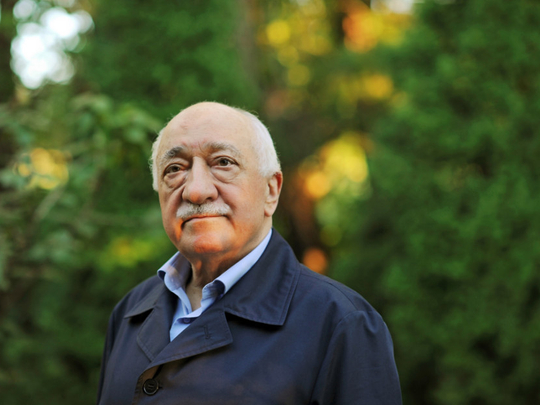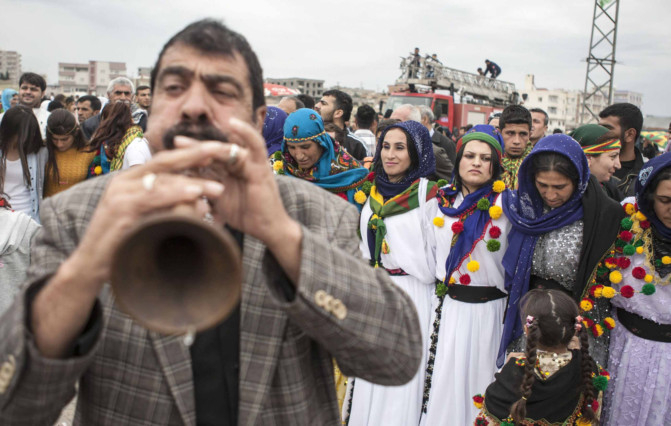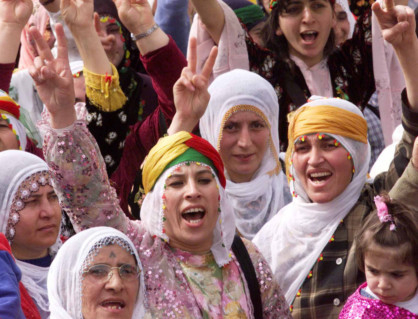
Dubai: When Turkish Prime Minister Tayyip Erdogan on March 31 addressed his jubilant supporters from a balcony at his party headquarters to declare victory in local polls, he did not mince his words about his perceived enemies.
“From tomorrow, there may be some who flee,” he said, referring to opponents he had already described as “terrorists” and an “alliance of evil” during the long and bitter election campaign seen as a referendum on his rule.
“We will enter their lair,” he said. “They will pay the price; they will be brought to account. How can you threaten national security?”
Kurds:
Kurds who came close to Erdogan ten years ago seem to be moving away from him for political and economic reasons.
Politically, they say the policy of the Justice and Development Party (AKP), Erdogan’s party, towards the Kurdish peace process has failed, prompting many of them to withhold their support or to join other parties, mainly the pro-Kurdish People’s Democracy Party (HDP).
“Thousands of pious Kurds, including entire tribes, have parted ways with the AKP, convinced that it has no real intention of reconciling with the Kurds,” Turkish columnist Fehim Tastekin wrote.
“The 2011 air raid that killed 34 young Kurds from the village of Roboski on the Iraqi border, Ankara’s hostile rhetoric against the Kurdish resistance to Daesh’s siege of Kobani, its description of Kurdish fighters as “terrorists,” Erdogan’s electoral shows with Kurdish-language Qurans and Ankara’s back-pedalling on the peace process have all caused indignation among pious and conservative Kurds as well,” Tastekin wrote.
Economically, the Kurds have started complaining that their areas have not benefited like other regions from real economic prosperity and that economic hardships are compounding their lives.
The eastern and southeastern regions, where most of the Kurds live, face serious economic hardships compared with the other regions and seem to lag behind on the progress that other parts of the vast country are witnessing.
The rate of unemployment in the southeast is high amid reports that it was 15.6 per cent whereas the national average is 9.9 per cent.
Fethullah Gulen:
Ally-turned-foe Fethullah Gulen is seen as Erdogan’s greatest nemesis, with neither man hiding their dislike for the other.
Gulen was a close ally of Erdogan’s party after it came to power in 2002. However, the relationship dramatically deteriorated in 2013 after Erdogan and the AK Party accused Gulen and his supporters of “seeking to establish a parallel state” in Turkey and of orchestrating a corruption investigation in 2013 that put the government at a real risk.
Although Gulen rejected the allegations, Erdogan reassigned thousands of the religious man’s supporters, including policemen, judges and prosecutors, and worked on minimising his influence throughout Turkey and well beyond,
Gulen, who describes himself as an “Islamic scholar, preacher and social advocate” has been regularly condemning Erdogan harshly.
“It is deeply disappointing to see what has become of Turkey in the last few years,” Gulen wrote in an editorial for the New York Times in February. “Not long ago, it was the envy of Muslim-majority countries: a viable candidate for the European Union on its path to becoming a functioning democracy that upholds universal human rights, gender equality, the rule of law and the rights of Kurdish and non-Muslim citizens. This historic opportunity now appears to have been squandered as Turkey’s ruling party, known as the AKP, reverses that progress and clamps down on civil society, media, the judiciary and free enterprise.”
Turkey’s current leaders seem to claim an absolute mandate by virtue of winning elections, he added.
“But victory doesn’t grant them permission to ignore the Constitution or suppress dissent, especially when election victories are built on crony capitalism and media subservience.”














